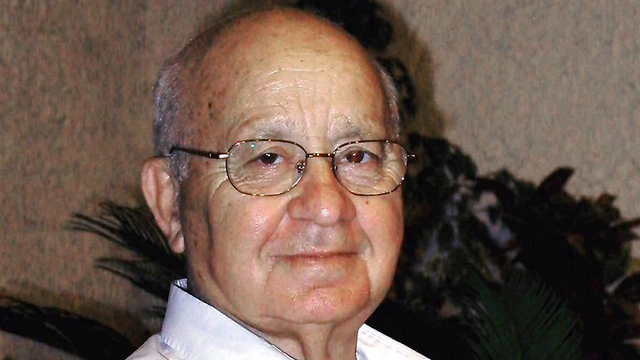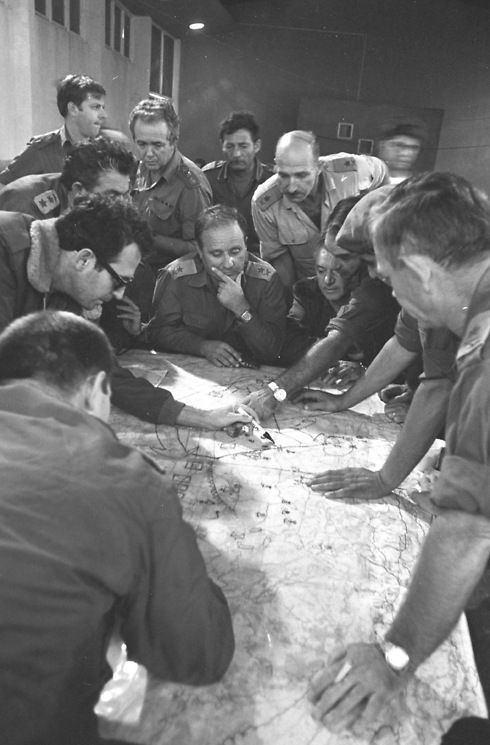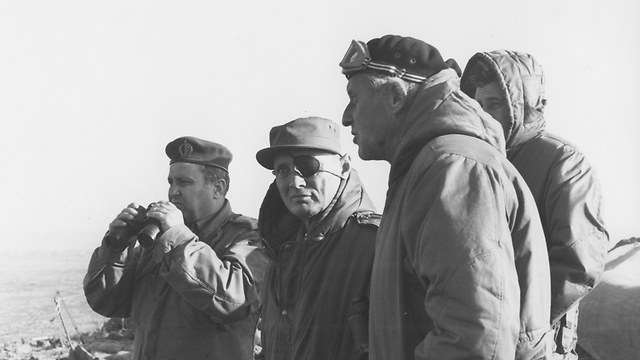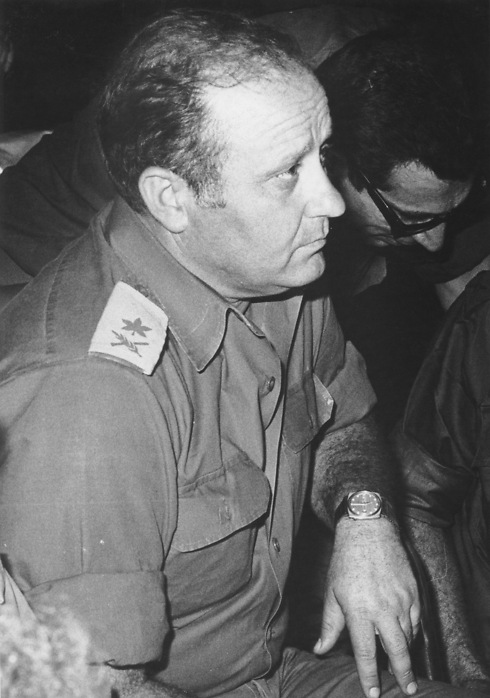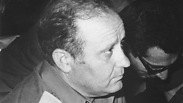
A farewell to Hofi
Humble to the core, the former Mossad chief who helped lay the foundations for the IDF said: 'If I contributed anything to the state, I don't deserve thanks for it.'
Everyone spoke on Monday, and will write today, Tuesday, about Haka, Major General Yitzhak (Haka) Hofi, about his Palmach days, about his role in laying the foundations for the Israel Defense Forces, about his stint as commander of the Paratroopers' Brigade, about his service during the Six-Day War and the Yom Kippur War, and about his term as Mossad chief. I'd like to write here about Haka, the friend, the neighbor, and, primarily, the man – or, as previous generations would say, the mensch.
Haka notched up impressive personal achievements – no less so than those of others who rose to the post of Israeli prime minister; and until recently, he was an ever-present figure at some of the most critical junctures in Israel's history. Nevertheless, relatively few people know his name, and even fewer are aware of his exploits.
Haka himself is also to blame for his anonymity. He was humble to the core, a modest man in all senses of the word. As a neighbor and friend who wanted nothing but the best for him and publication of his exploits, I once said to him: "Haka, everyone is writing books." Haka replied: "Everyone writes books; I don't." And I said: "Haka, perhaps we should make a TV show about you?" To which he replied, "Everyone makes TV shows; I don't." I pleaded with him: "Haka, say some something. You were a major general in the IDF. You were head of the Mossad. You have a thousand and one stories. Why don't you share your spellbinding memories with the public?" And Haka fixed me with a scolding look and replied: "Stop messing with my head. If I contributed anything to the state, I don't deserve thanks for it."
Haka joined the Palmach as a teenager; he fought in the War of Independence, and humbly made his way up the ranks of the IDF, without any pomp and circumstance. He served as deputy commander of the Paratroopers' Brigade under Ariel Sharon, and went on to become one of the brigade's most prominent leaders.
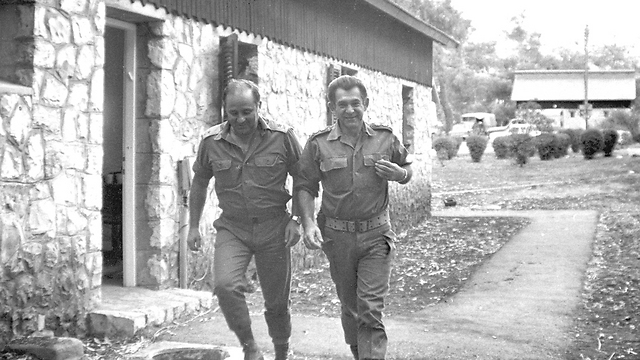
During the 1973 Yom Kippur War, he held the position of GOC Northern Command, facing off against the stirring Syrian Army. He was the only one on the General Staff who warned of the possibility of war, and persuaded then-defense minister Moshe Dayan to decide to bolster the IDF troops on the Golan Heights. The reinforcements, no doubt, saved the State of Israel and prevented the Syrians from washing their feet in the Sea of Galilee. There have been those who have told stories about Haka's management of the war in the north, but the bare facts are what tell the full story: When the dust settled after "the hardest days of my life," as Haka put it, the IDF was parked just 40 kilometers from Damascus. The victory was a painful one, but a victory nonetheless. And Haka kept out of the arguments that ensued in the wake of the war among the IDF chiefs; instead, he generously showered praise on the commanders and soldiers and never sought any personal glory.
When it came to the political echelon under which he served, both during his military career and as Mossad chief, and also as director-general of the Israel Electric Corporation in civilian life, he had a wide range of opinions and, primarily, stories that will remain off the record. One could have easily published an encyclopedia of the antics and trickery of prime ministers and others had Haka allowed the stories to be made public.
But Haka for the most part remained silent. He always steered clear of the limelight and allowed others to steal the glory. He was deeply involved in the peace deal with Egypt, the Entebbe raid, the hunt for the murderers of the Israeli athletes at the Munich Olympics and more and more. His private life in recent years was unbearably difficult. His daughter passed away. His wife, Esther, fell seriously ill. And he was uprooted from his beloved home in Ramat Gan's Paratroopers Quarter and placed in a retirement home in Ramat Hasharon, where he found peace with friends from days gone by, and where he eventually passed away.
If one is to judge an individual according to the scope of his fame, then Haka ended his life as one of the lesser-known of the defense establishment's senior figures. But if one is to judge an individual according to the good he did for the State of Israel, then an entire country owes him their last respects. Goodbye to you, a real mensch.
Former Mossad chief Efraim Halevy adds: I remember well his first months as head of the Mossad. His decisions were sharp and clear, but he didn't waste his words. His face concealed more than it revealed. And only a very few knew how to interpret his minimalistic body language. With his unique style, he instilled confidence in the commanders and fighters; and as time went by, Mossad officials learned to love the man who stood up for his people and guided them calmly and confidently in operations around the globe. Haka was a military commander during wartime; he deftly orchestrated Israel's diverse intelligence activities; and he was the first to lay the foundations for reconciliation between Israel and its enemies. His ties with the Moroccan king led to the direct talks between the governments of Israel and Egypt, eventually giving rise to the first peace treaty between Israel and an Arab state. Among other things, he will be remembered as the individual who received and implemented the instructions of former prime minister Menachem Begin: "Go and bring the Jews of Ethiopia to Israel."
As he is laid to rest, many in the Mossad will remember their former chief with love, pride and a sense of deep gratitude for his long-lasting contribution to the security of Israel.










